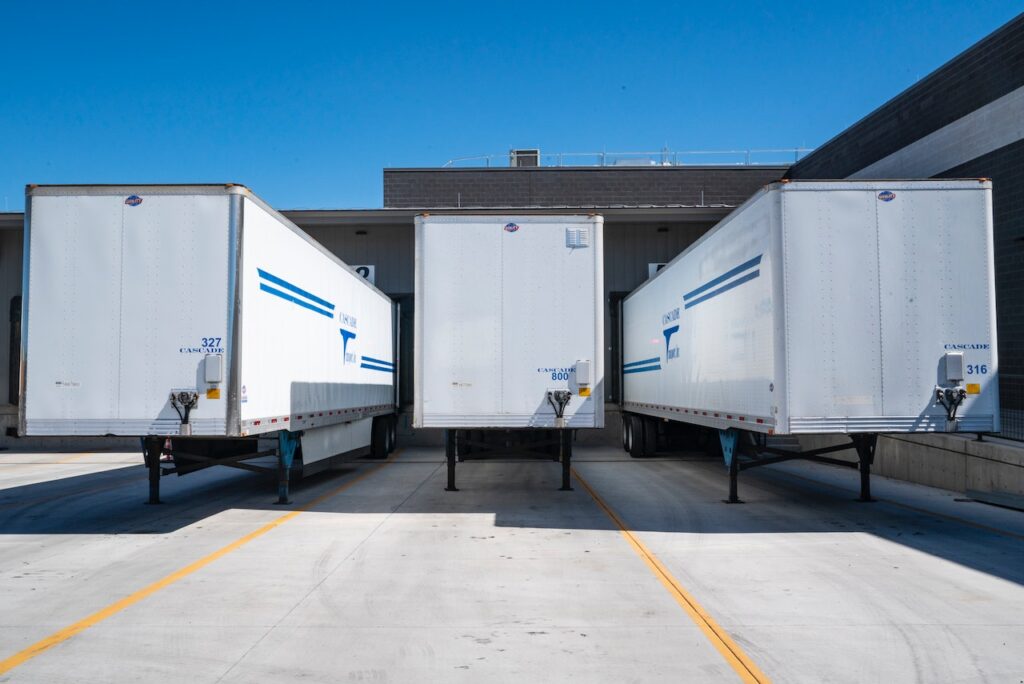Cargo trailers are essential assets for businesses and individuals alike. Whether you use them for transporting goods, equipment, or recreational activities, proper maintenance is crucial to ensure they remain in top-notch condition and serve you for years to come. In this comprehensive guide, we will delve into everything you need to know and do when performing maintenance on your cargo or enclosed trailer.
Routine Inspections
Regular inspections are the foundation of trailer maintenance. Before hitting the road or using your trailer, it’s essential to conduct a thorough inspection for the safety of you, your items, and others on the road. Here’s what to look for:
a. Tires and Wheels: Check tire pressure, tread depth, and overall tire condition. Ensure that the lug nuts on the wheels are tightened properly.
b. Lights and Wiring: Test all lights (brake lights, turn signals, and running lights) to ensure they are functioning correctly. Replace any burnt-out bulbs and repair damaged wiring.
c. Brakes: Examine the brake system, including brake pads and rotors, for wear and tear. Make sure the brake lights work as well.
d. Suspension: Inspect the suspension components, such as leaf springs and shocks, for signs of damage or wear.
e. Hitch and Coupler: Check the hitch and coupler for any loose bolts or signs of corrosion. Lubricate them regularly to prevent rust.
f. Safety Chains and Breakaway System: Ensure that safety chains are properly attached and in good condition. Test the breakaway system if your trailer is equipped with one.
The Importance of Safety
According to the NHTSA (National Highway Traffic Safety Administration), nearly 50,000 towing-related accidents happen on the road each year. Many of these accidents can be attributed to negligent maintenance and improper towing.
Taking the time to properly maintain your trailer is highly imperative. With all of the components in a cargo trailer, you may find yourself confused or overwhelmed at times. However, once you get familiar with the steps you need to take, you can ensure a smooth and safe towing experience every time.
Rust Prevention
Rust is the nemesis of trailers, as it can weaken the structure and compromise safety. To prevent rust:
a. Inspect for Rust: Regularly inspect the trailer for any signs of rust or corrosion. Address rust spots promptly by sanding, priming, and repainting affected areas.
b. Undercoating: Consider applying an undercoating or rust inhibitor to the trailer’s underside to protect it from road salt and moisture.
Tire Maintenance
Proper tire maintenance is vital for safe and efficient trailer operation:
a. Tire Rotation: Rotate the tires periodically to ensure even wear and prolong their lifespan.
b. Tire Replacement: Replace tires that show excessive wear, damage, or sidewall cracks. Don’t forget to replace the spare tire if it shows signs of aging.
C. Balancing: Have the trailer tires balanced to prevent uneven wear and improve stability on the road.
Wheel Bearing Care
Wheel bearings are critical components that require regular attention. It is recommended to inspect your trailer bearings every 6-12 months based on how often the trailer is used:
a. Greasing: Grease the wheel bearings according to the manufacturer’s recommendations. Under-greasing can lead to overheating, so follow the guidelines carefully.
b. Bearing Inspection: Inspect the wheel bearings for signs of wear, including noise or excessive play. Replace them if necessary.
It is important to be aware of your bearings’ condition. Bearings can “blow” inside of the wheel hub if conditions arise such as water entering the wheel hub, or lack of grease. In the worst of scenarios, the grease may run so dry that the trailer’s bearings become extremely hot inside of the wheel hub that they practically weld together or to the spindle. If this happens, you will now have to replace many more components such as that entire axle.
Brake Maintenance
Properly functioning brakes are essential for trailer safety:
a. Brake Adjustment: Periodically adjust the brakes to ensure they engage properly. Consult the trailer’s manual for instructions on how to adjust the brakes.
b. Brake Fluid: Check the brake fluid level in hydraulic brake systems and top it up if needed. Replace brake fluid as recommended by the manufacturer.
c. Brake Pad Replacement: Replace brake pads when they are worn down to the minimum thickness specified in the manual.
Electrical System Check
The electrical system is vital for trailer lighting and braking:
a. Battery Maintenance: If your trailer has a battery for the breakaway system, a winch, or interior lights, keep it charged and replace it if it no longer holds a charge.
b. Wiring Inspection: Regularly inspect the trailer’s wiring harness for damage, loose connections, or frayed wires. Repair or replace damaged wiring promptly.
Safety Equipment
Ensure that all safety equipment is in proper working order:
a. Fire Extinguisher: Check the fire extinguisher’s pressure gauge to ensure it is within the recommended range.
b. Emergency Kit: Keep an emergency kit in your trailer, including items like flares, reflective triangles, and a first-aid kit.
Conclusion
Proper maintenance is the key to ensuring the longevity and safety of your cargo or enclosed trailer. By performing routine inspections, keeping your trailer clean, preventing rust, and addressing issues promptly, you can enjoy trouble-free towing and worry-free transport of your precious cargo. Remember that your trailer’s maintenance needs may vary depending on its type and usage, so always refer to the manufacturer’s guidelines and consult with a professional if you are unsure about any aspect of trailer maintenance. With regular care and attention, your trailer will continue to serve you reliably for years to come.







Leave a Comment
You must be logged in to post a comment.